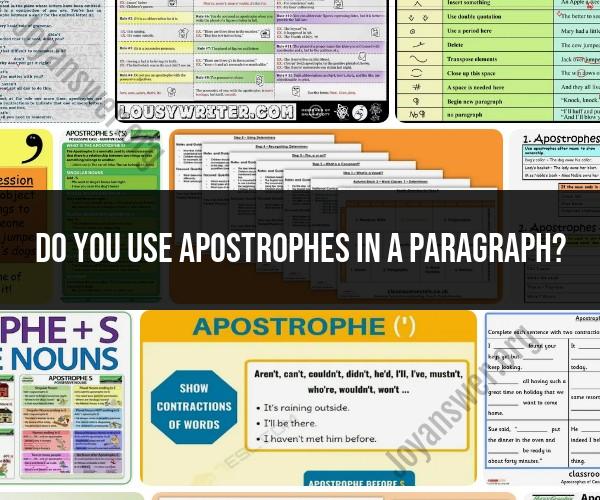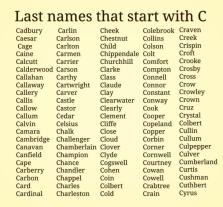Do you use apostrophes in a paragraph?
Yes, you use apostrophes in a paragraph when they are grammatically necessary. Apostrophes are punctuation marks that serve specific purposes in writing:
Indicating Possession: Apostrophes are used to show that something belongs to someone or something else. For example:
- "The patient's condition worsened overnight."
- "The doctor's expertise is highly regarded."
Creating Contractions: Apostrophes are used in contractions, which are shortened forms of words where letters are omitted. For example:
- "It's" instead of "It is."
- "I've" instead of "I have."
Indicating Omission in Dates: In informal writing, apostrophes can be used to indicate omitted numbers in dates. For example:
- "I graduated in the '90s." (instead of "1990s")
Abbreviating Numbers: In informal writing, apostrophes can be used to abbreviate numbers when discussing decades or other contexts. For example:
- "The class of '22 will be graduating next year."
Indicating Plurals with Letters: Apostrophes can be used to indicate plurals for individual letters. For example:
- "Mind your P's and Q's."
It's essential to use apostrophes correctly to ensure clarity and proper grammar in your writing. Misusing or omitting apostrophes can lead to confusion or grammatical errors. Always proofread your paragraphs to check for correct apostrophe usage.













